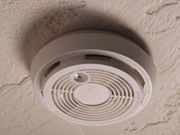Additional study needed to demonstrate the efficacy of residential CO alarms
FRIDAY, Oct. 21, 2016 (HealthDay News) — From 1999 to 2014 the numbers of deaths, both accidental and intentional, due to carbon monoxide (CO) poisoning significantly declined in the United States, according to a study published in the October issue of the Annals of the American Thoracic Society.
Neil B. Hampson, M.D., from the Virginia Mason Medical Center in Seattle, evaluated data from the U.S. Centers for Disease Control and Prevention’s Multiple Cause of Death file (1999 to 2014) to understand U.S. mortality from CO poisoning.
Hampson found that total deaths by CO poisoning decreased from 1,967 in 1999 to 1,319 in 2014 (P < 0.001). As a result, both crude and adjusted death rates fell. In 2014, accidental poisoning accounted for 13 percent fewer deaths per year versus 1999 (P < 0.001). Over the same time period the number of intentional deaths by CO poisoning decreased by 47 percent (P < 0.001). In the 19 states that required residential CO alarms by 2010, the rate of decline in combined adjusted death rates (1999 to 2014) was not different from that for the 31 states that did not require residential alarms (P = 0.982).
“Continued public education about CO toxicity should be emphasized,” Hampson writes. “Additional study is needed to demonstrate the efficacy of residential CO alarms.”
Full Text (subscription or payment may be required)
Copyright © 2016 HealthDay. All rights reserved.








